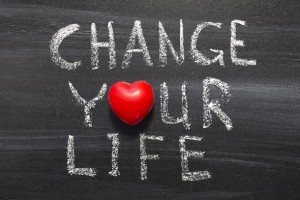Recovering from an Eating Disorder is all consuming. It is a full time job in itself and takes a lot of commitment and hard work. It can therefore be quite soul destroying when relapse happens.
Relapses are however very common and natural. The most important thing is being aware of the signs and then being able to deal with what is happening.
The key signs to look out for are –
- You have an increased need for control in your life
- A higher level of perfectionism returns
- Constant thoughts around food are taking over
- Higher levels of sadness and hopelessness are happening
- Avoidance of any get together around food starts to occur
- Preoccupation with body image and size increases
- Increased belief that your failing if you are not on a “diet”
- Weighing yourself becomes more frequent
- Mood is determined and dictated by weight and food
- You feel more guilt after eating
- You feel larger then you actually are
- Your becoming more dishonest with the closest people in your life
- You are isolating yourself more
- Increased time spent looking in the mirror and being critical
- You start to skip meals, or to purge them
- You compare yourself more to other people
- You feel insecure most of the time
- You have an increased need to exercise continually
If you or someone close to you starts to display some of the above signs, then relapse is occurring. A relapse in recovery can be very disheartening. Often people can feel that they have failed in some way, and that they have let themselves down. It can be very disillusioning to feel that you are going backwards in your recovery, or that you are back where you began.
They key however is to remember that you haven’t gone all the way back. Recovery from an Eating Disorder is not meant to be perfect and having a relapse doesn’t mean failure. It’s important to remember that all of your recovery is still with you. Be kind to yourself, show yourself some compassion and remember that you still have your therapeutic toolbox. Here are some really useful ways to manage a relapse –
- Remind yourself that relapse is a natural part of recovery
- Don’t use your relapse as a way of beating yourself up
- Try and focus on getting back on track with your recovery
- Return to therapy if you aren’t currently in it
- Seek help from your therapist if you are in therapy – be honest about where you are at and what you are doing
- Start to make some positive changes
- Begin to keep a journal of your feelings and thoughts
- Start making a food plan to help your eating to settle down
- Try and identity what triggered your relapse
- Look at different ways of handling those triggers next time you are faced with them
- Start spending time doing the things that you enjoy
- Make sure you spend time around people that make you feel good
- Ensure that you are using your support network
- Be kind to yourself
- Take time out each day just for you
- Slow down and stop putting so much pressure on yourself
- Try your best to talk about what you are feeling
- Listen to your body and your feelings
- Try to trust and accept yourself
- Work towards loving yourself
- Remember to try and enjoy your life


